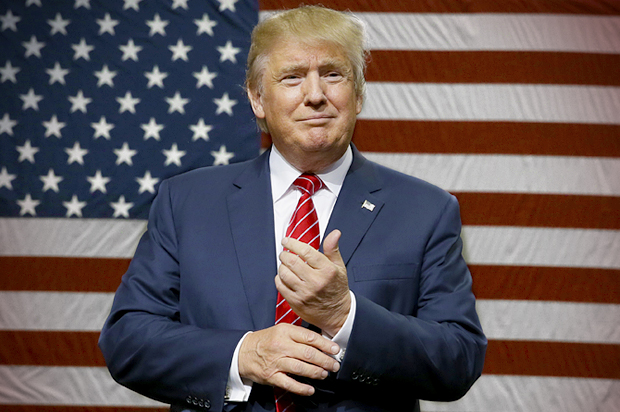
In Part Two of the series, the top 5 gambling stories are revealed
Whether it was single game sportsbetting getting shot down in Canada or the frustration that online poker players have in California, gambling news in 2016 was robust. Hartley Henderson lists his top 10 gambling stories of the year, with this piece covering the top five stories. To read the rest of the top gambling stories in North America for 2016, click here.
5. Scandals involving Phil Mickelson
Whenever household named celebrities get involved in gambling scandals it is big news. This year that honor belongs to Phil Mickelson. Mickelson has always been a big gambler and from the mid 1990s to the early 2000s Mickelson lost almost $3 million betting on credit at Las Vegas casinos per casino credit reports. He was also fined by the PGA for violating tour rules in 2001 by wagering with another golfer that Jim Furyk would hole a bunker shot, which gave Furyk the PGA championship that year. And fellow friends and golfers maintain that Mickelson is always betting on friendly games to ensure he gets some enjoyment from the games by having action. However, these actions never tied him to illegal gambling, so they were generally forgotten.
 In 2016, however, Mickelson's gambling exploits created two scandals that were threatening to hurt his legacy.
In 2016, however, Mickelson's gambling exploits created two scandals that were threatening to hurt his legacy.
In the first case, high profile gambler Billy Walters was charged with securities fraud, wire fraud and insider trading for profiting in the trading of Dean Foods and according to the indictment Walters also provided insider information to Mickelson, who made almost a million dollars off the information. Mickelson wasn't charged in that case since the SEC claims Mickelson only acted on advice, but Mickelson agreed to pay back $931,000 he made from the tips as well as $105,000 in interest without admitting any guilt. Not surprisingly many are concerned not only that Mickelson profited from illegal trading, but that he also has such close ties to a known gambler.
In the other more concerning scandal, Greg Silviera, a colleague of Mickelson pled guilty to three counts of money laundering after he transferred $2.75 million between his Wells Fargo bank accounts and a JP Morgan Chase account to be used for illegal sports betting for a gambling client. ESPN's Outside the Lines stated that the gambling client was Mickelson, even though Mickelson was never named by the courts in the charges. Originally the initials P.M. were alluded to, but were quickly removed by the courts. It seems clear that the DoJ and SEC wanted to protect Mickelson but this is just another scandal that connected the famed golfer to a known person involved in the gambling industry. And with the Republicans now in control there is the possibility that the government may not be so lenient with Mickelson in the future if he gets involved with more gambling scandals. After all, while Trump himself may not be opposed to gambling, the majority in the House and Senate are and Mickelson could prove to be a great whipping boy for their anti-gambling crusade should they choose to go that route.
Despite the scandals, Mickelson played well when his involvement was first announced although his game deteriorated throughout the rest of the year. It's uncertain if these scandals affected that, but there's no question they didn't help.
4. The insider trading charges against David Baazov
When Amaya Gaming purchased PokerStars for $4.9 billion a few years ago, Amaya's CEO David Baazov was being hailed as a genius and one of the brightest in the industry. Baazov was instrumental in seeing Amaya sign an agreement that gave them the right to run the Lotto Quebec online gaming site Espace-jeux in 2010 and he also was front and center when Amaya purchased all the assets of Cryptologic. But his main achievement was the purchase of PokerStars, after the Oldford group threw up its hands realizing it was never going to flourish in the United States if the former owners like Isai Scheinberg were associated with the PokerStars name. Things changed for Baazov in March of this year when Quebec's Autorité des marchés financiers (AMF), an entity like the SEC, laid charges against Baazov for insider trading.
 According to the AMF Baazov aided in trading while in possession of privileged information and consequently influenced or attempted to influence the market price of Amaya securities by communicating privileged information to parties that acted on it including his brother. According to the AMF Baazov was involved in an elaborate scheme that provided kickbacks in exchange for tips on several takeovers that involved several companies including Chartwell Technologies, WMS, Bwin, Intertain, Cryptologic and PokerStars. Baazov's older brother was instrumental in the kickbacks per the AMF filing and one of Baazov's childhood friends and 11 others were charged as well. Baazov denied the claims and pled not guilty in May and his lawyer claims the crown's case is incomplete and they will not be able to make the charges stick. Nevertheless, after being named Baazov decided to take a leave of absence as CEO of Amaya in March of 2016 and in August he was dropped as CEO by the company and replaced with Rafi Ashkenazi.
According to the AMF Baazov aided in trading while in possession of privileged information and consequently influenced or attempted to influence the market price of Amaya securities by communicating privileged information to parties that acted on it including his brother. According to the AMF Baazov was involved in an elaborate scheme that provided kickbacks in exchange for tips on several takeovers that involved several companies including Chartwell Technologies, WMS, Bwin, Intertain, Cryptologic and PokerStars. Baazov's older brother was instrumental in the kickbacks per the AMF filing and one of Baazov's childhood friends and 11 others were charged as well. Baazov denied the claims and pled not guilty in May and his lawyer claims the crown's case is incomplete and they will not be able to make the charges stick. Nevertheless, after being named Baazov decided to take a leave of absence as CEO of Amaya in March of 2016 and in August he was dropped as CEO by the company and replaced with Rafi Ashkenazi.
Despite being kicked out, Baazov still was the largest shareholder and he had planned to buy all the shares of Amaya and take the company private. Baazov along with a group of investors offered 2.8 billion Canadian dollars or $21 per share for the company and later upped the bid to $24 per share, but it was clear that Amaya's board wanted nothing to do with Baazov, who they saw as a tainted figure. They also decided the bid wasn't sufficient so in December Baazov decided to walk away from the offer.
Concerning to Amaya itself, the charges against Baazov could affect the company moving forward in states such as California where several tribes still want to ban PokerStars from operating, since they were accepting U.S. customers after the passing of the UIGEA. Amaya has always claimed that the tribes have no beef with them since they are different owners than the Scheinbergs, but the tribes will almost certainly point to the charges against Baazov now and say that it is proof that PokerStars are still "bad actors".
3. The increasing use of bitcoin for gambling
From its outset, it was clear that bitcoin would be a big boon for bettors. The virtual currency assures anonymity, avoids the use of banks and allows for instantaneous deposits and payouts. At first the only forms of gambling for bitcoin owners were bitcoin only sites such as sotoshi dice, DirectBet and Seals with Clubs, but in later years several other more mainstream sites started accepting the virtual currency as well including Switch Poker, Heritage Sports, Bovada and 5Dimes among others. And in the last year Bookmaker and BetOnline also began accepting bitcoin and most sportsbooks and casinos are either in the process or planning on setting up a platform  which will allow for players to deposit and withdraw with bitcoin.
which will allow for players to deposit and withdraw with bitcoin.
One of the major concerns with bitcoin for traditional casinos and sportsbooks was the huge fluctuations in the value of the virtual currency and while bitcoins still has fluctuations, it has stabilized. In fact, a couple of companies that now accept bitcoin state that the victual currency has less fluctuations than fiat currencies. The Canadian dollar, for example, has tanked in recent years because of lower oil costs and the Euro has plummeted after Brexit. But the companies also state they aren't overly concerned with fluctuations since those who deposit with bitcoin can only withdraw with that currency and the ease of funding and not having to deal with the banking system makes it worth it to them. They also indicated that they are willing to hold onto the currency if it loses too much value until it rebounds and stabilizes.
Bitcoin was given an additional boost in 2016 when NetBet decided to accept bitcoin in October. NetBet was the first site located in Europe to accept bitcoin as a payment option and that company is licensed under the UK Gaming Commission which is known to have some of the most stringent rules in place for gambling operators. The fact that bitcoin is allowed under UKGC rules gives credence to its legitimacy. As well, after speaking to workers at other larger UK gaming sites it became apparent that they too are interested in possibly introducing it as a payment option soon. According to the workers at those companies many of their customers have requested it. In addition, the virtual currency is enticing to them since payments are guaranteed and it cuts back on fraud and chargebacks, which is always a concern.
The election of a Republican government in the United States could mean a greater crackdown on online and offshore gambling and if this occurs, bitcoin offers a great option since it's impossible to identify transactions that originate in the United States and the bettor never has to deal with any U.S. bank which tends to deny withdrawals from gambling companies. Bitcoin could indeed be the future of gambling. The next year or two will determine that for sure.
2. The ongoing frustration with Daily Fantasy Sports
Daily fantasy sports (DFS) was the top story last year after a data leak occurred at DraftKings and stories emerged of insiders profiting on DFS sports, which led to various states questioning the legality of DFS and consequently many states told DraftKings and FanDuel to stop operating in their state. New York Attorney General Eric Schneiderman even went so far to charge both companies with illegal gambling and false advertising. In 2016 we saw the DFS story emerge even further.
 Both DraftKings and FanDuel withdrew their services from several states including New York, stopped offering play on college sports and the companies saw millions of dollars go out the door in legal costs. This not only led to the companies becoming unprofitable, but payouts on the games have gone down considerably and advertising has been curtailed substantially. Naturally those decisions led many smarter players to give up the product resulting in increasing losses and talks of a merger of the two big companies to ensure viability.
Both DraftKings and FanDuel withdrew their services from several states including New York, stopped offering play on college sports and the companies saw millions of dollars go out the door in legal costs. This not only led to the companies becoming unprofitable, but payouts on the games have gone down considerably and advertising has been curtailed substantially. Naturally those decisions led many smarter players to give up the product resulting in increasing losses and talks of a merger of the two big companies to ensure viability.
Things did pick up about half way through the year when New York voted to legalize DFS and the companies settled with Schneiderman for $12 million to have the charges for false advertising dropped, but that payment just added to the companies' liabilities. Also to the advantage of both companies, numerous states announced plans to legalize the product. 10 states currently have legislation that legalizes DFS and as many as 12 other states have plans to legalize and regulate the product. Each state has different criteria in their rules, but each state's regulations ensure that minors are banned from playing, geolocating is in place to ensure players are in their state when they play a contest, that amateur sports is banned. There is also some sort of taxation to ensure state coffers are remunerated. On the other side of the coin many states, including some major states like Texas, have made DFS illegal.
The merger talks culminated in November after an announcement was made which stated both DraftKings and FanDuel have agreed to join forces. Under the terms of the agreement both sites would have half ownership but there is a belief that the FTC may not approve of the merger since it could violate anti-competition laws. If that happens it's uncertain whether the companies will be able to survive independently.
2017 will be an interesting time for the fantasy sports industry but one benefit to DraftKings, FanDuel, Yahoo and the bettors is that DFS is excluded in RAWA. So even if Congress and the President sign that bill into law, it will not affect the legality of daily fantasy sports.
1. The election of Donald Trump as President of the United States
When Donald Trump announced he was running for the U.S. presidency, most people laughed at the prospect and bookmakers instilled him as a 200-1 shot to win. Many bookmakers were left crying when Trump won and they had to pay out those bets. But the question on gamblers minds is whether Trump will be good or bad for gambling in the United States and currently that is still uncertain.
 Trump made his fortune building casinos in Atlantic City, among other developments, and he is on record stating that he supports gambling because "life is a gamble." He also suggested in the past that the United States should legalize online gambling because they are falling behind other nations that have legalized the product, but those statements were made prior to his winning the election and he is now the head of a party whose platform opposes online gambling. The party did remove its objections to online poker from its platform, but they still have other forms of gambling included in the Republican policy doctrine. Moreover, one of the party's largest supporters, Sheldon Adelson, who contributed $20 million to this year's GOP candidates, has spent a lot of additional money trying to convince Americans and GOP members that online gambling must be stopped to protect the public. He even had Republican congressmen and senators introduce his bill, RAWA (Restoration of America's Wire Act) in Congress that aims to not only stop online gambling legalization in its tracks, but reverse the 2011 opinion from the DoJ which claims the Wire Act only applies to sports betting. And RAWA aims to make online gambling illegal even in the 3 states that have already legalized it (New Jersey, Nevada and Delaware). Fortunately for bettors, Trump has shown he isn't going to be beholden to anyone and by all accounts took very little money personally from Adelson during the campaign.
Trump made his fortune building casinos in Atlantic City, among other developments, and he is on record stating that he supports gambling because "life is a gamble." He also suggested in the past that the United States should legalize online gambling because they are falling behind other nations that have legalized the product, but those statements were made prior to his winning the election and he is now the head of a party whose platform opposes online gambling. The party did remove its objections to online poker from its platform, but they still have other forms of gambling included in the Republican policy doctrine. Moreover, one of the party's largest supporters, Sheldon Adelson, who contributed $20 million to this year's GOP candidates, has spent a lot of additional money trying to convince Americans and GOP members that online gambling must be stopped to protect the public. He even had Republican congressmen and senators introduce his bill, RAWA (Restoration of America's Wire Act) in Congress that aims to not only stop online gambling legalization in its tracks, but reverse the 2011 opinion from the DoJ which claims the Wire Act only applies to sports betting. And RAWA aims to make online gambling illegal even in the 3 states that have already legalized it (New Jersey, Nevada and Delaware). Fortunately for bettors, Trump has shown he isn't going to be beholden to anyone and by all accounts took very little money personally from Adelson during the campaign.
On the other side of the coin, Trump ran on the platform of protecting states rights and he'll likely find it difficult to mandate to the states that they can't offer gambling, which has traditionally been a 10th amendment issue. And while Trump recently had a falling out with New Jersey Governor Chris Christie, Trump will still feel somewhat indebted to him for being one of the original sponsors of his campaign and Christie will fight tooth and nail to ensure that New Jersey keeps its right to continue to offer casino gambling. Moreover, Christie, along with Republican governors in other states have fought hard to convince Congress to overturn PASPA and allow the states to offer sports wagering. Recently the American Gaming Association sent a letter to Trump and his transition team urging the party to legalize sports betting to help land based casinos and because the public wants it. By all accounts Adelson is not all that concerned about sports betting or poker since they are not profitable for the land based casinos, so chances are Trump and his advisors may adopt some form of compromise that will introduce a federal law to stop online casino gambling from further expansion in the U.S. but allow other forms of gambling, including sports betting and poker, at the federal level.
So, the election of Trump could be good or bad for American gamblers. Who knows? Trump doesn't take office until January 20th, but no doubt online gambling will be an issue near the top of the list for RAWA supporters and for the gambling industry which wants to crush that endeavor. The gambling industry will anxiously await the first RAWA hearing to see if Trump sticks to his convictions and his words and legalizes the product at the federal level, whether he announces the feds have no place on the issue and leaves it up to the states to decide or whether he caves in to the likes of Jason Chaffetz, Lindsay Graham and his Vice President Mike Pence and halts gambling expansion in its tracks.
Whatever happens, the Trump presidency will be crucial to the future of gambling in the United States and possibly even offshore.
Check out the rest of the top gambling stories of 2016 in North America here.
Read insights from Hartley Henderson every week here at OSGA and check out Hartley's RUMOR MILL!







































